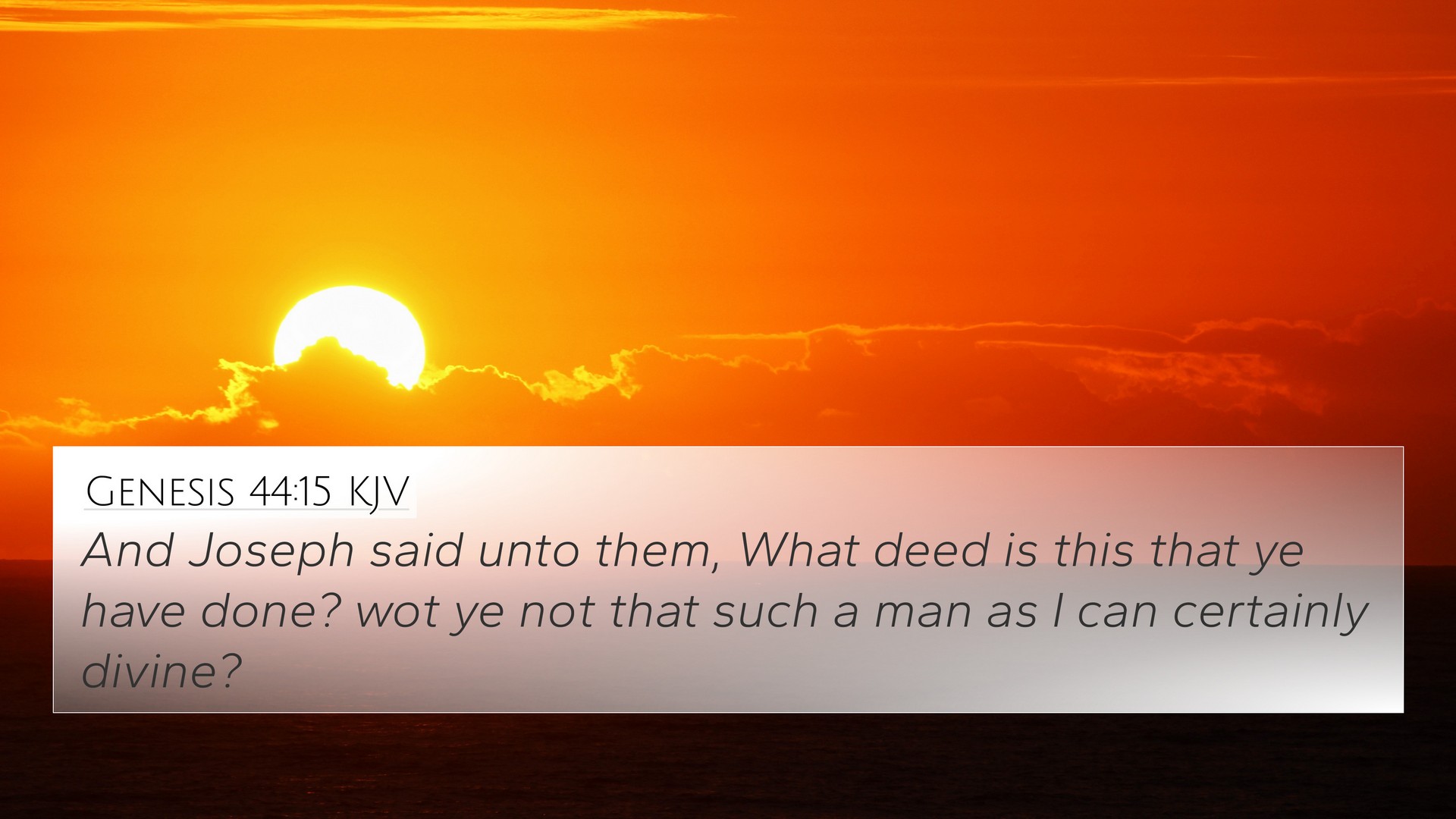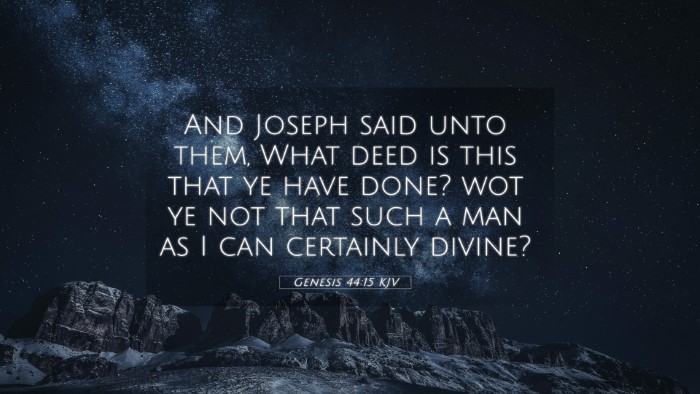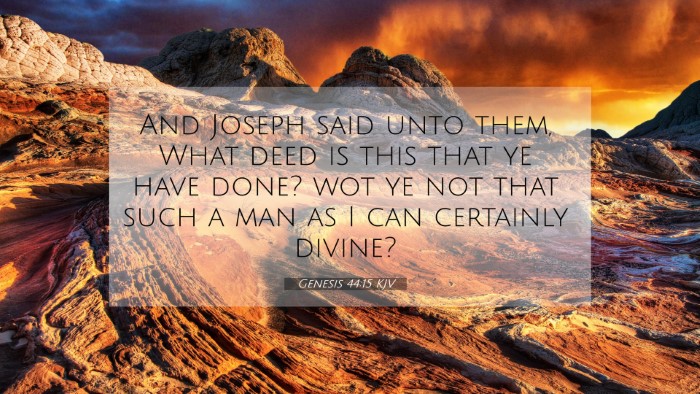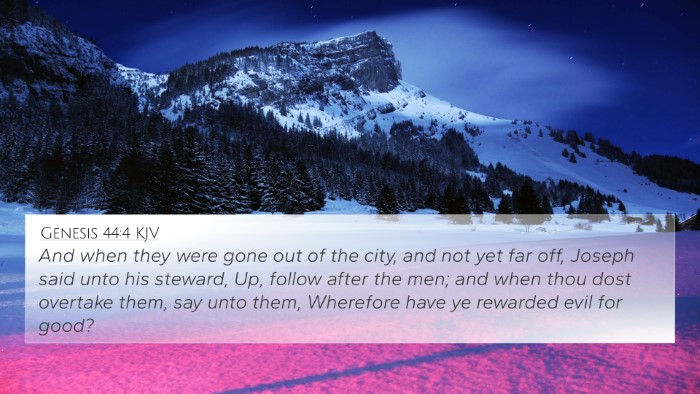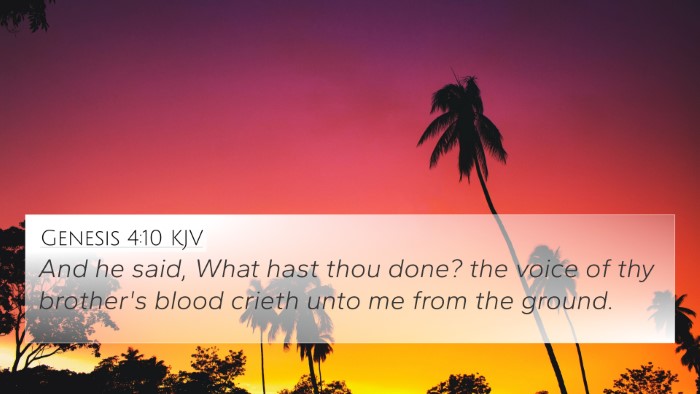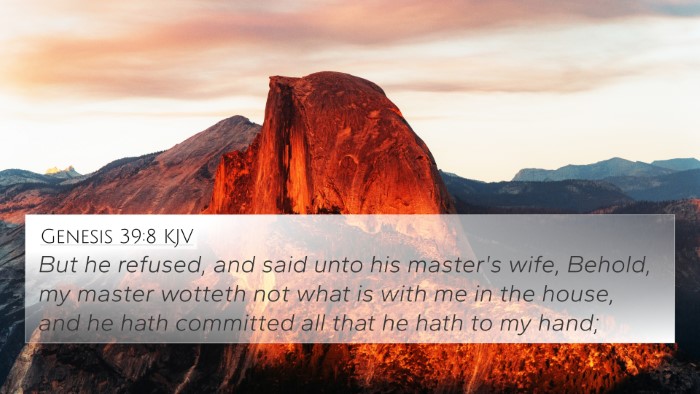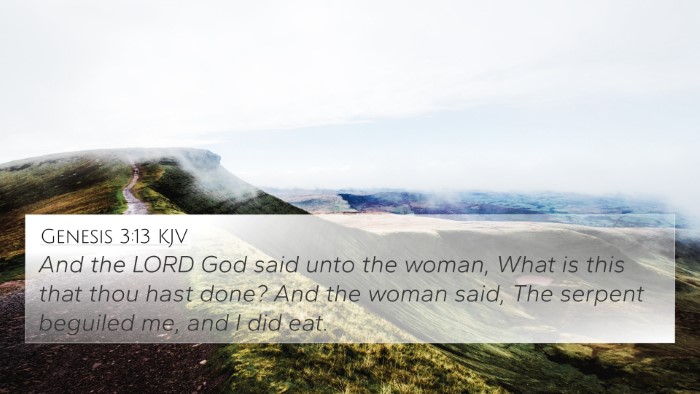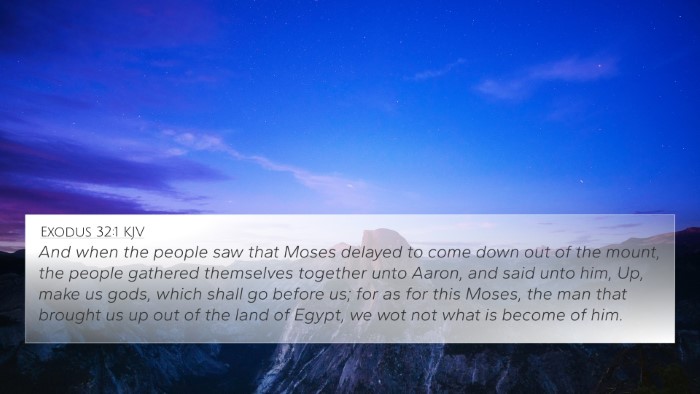Understanding Genesis 44:15
Genesis 44:15 states:
“And Joseph said unto them, What deed is this that ye have done? wot ye not that such a man as I can certainly divine?”
Summary and Interpretation
The verse occurs in the narrative of Joseph and his brothers, where Joseph, now a powerful Egyptian ruler, confronts his brothers after they unwittingly return with a silver cup. This moment serves as a poignant intersection of themes such as guilt, restitution, and divine sovereignty.
Insights from Public Domain Commentaries
-
Matthew Henry:
Henry emphasizes Joseph’s role as an authority who exercises his power with a sense of moral responsibility. He points out that Joseph questions his brothers to make them reflect on their past actions and the implications of their deceit.
-
Albert Barnes:
Barnes interprets this verse to showcase Joseph’s awareness and understanding, articulating that his divine ability to discern truth is integral to his identity. This presents Joseph not merely as a ruler but as a divinely appointed leader, navigating complex familial relations.
-
Adam Clarke:
Clarke notes the irony in Joseph’s statement, as he is effectively acting out a role to draw out true repentance from his brothers. It highlights the tension between his hidden identity and their lack of awareness regarding his intentions.
Thematic Connections to Other Scriptures
This verse can be cross-referenced with several others that illustrate the themes of justice, accountability, and revelation:
- Genesis 37:27: Joseph sold by his brothers, highlighting past betrayal.
- Genesis 42:22: Brothers experience guilt over Joseph’s treatment.
- Acts 7:9-10: Stephen recounts Joseph's narrative, focusing on trials and divine favor.
- Psalms 105:17-19: God's providence evident in Joseph's life despite betrayal.
- Matthew 12:25: A reference to the principle of recognizing the truth in actions.
- Hebrews 4:13: The notion that nothing can remain hidden from God’s view, tying back to Joseph's insight.
- Luke 8:17: Similarities in the theme of revelation; nothing secret will remain concealed.
Exploring the Dynamics of Repentance
In this story arc, we observe the vital notion of repentance as Joseph employs his authority to challenge his brothers to confront their past. The confrontation serves to evoke a critical shift within the brothers, portraying the journey from guilt to potential reconciliation.
Broader Context in the Biblical Narrative
The encounter between Joseph and his brothers is a rich narrative within the broader context of Genesis. Themes of jealousy, forgiveness, and God's providence resonate throughout the lives of the patriarchs, culminating in this moment which paves the way for future redemption.
Connection to New Testament Teachings
The themes inherent in Genesis 44:15 can find echoes in New Testament teachings, particularly around reconciliation and accountability before God:
- James 5:16: The significance of confessing sins to one another.
- 1 John 1:9: The assurance of forgiveness upon confession.
Using Cross-Referencing Tools for Deeper Study
To deepen your understanding of Genesis 44:15, various Bible cross-reference tools can be utilized:
- Utilize a Bible concordance for thematic connections.
- Employ a cross-reference Bible study method for broader contextual insights.
- Access a Bible cross-reference guide for finding similar verses.
Final Thoughts
Genesis 44:15 serves not only as a moment of tension but as a powerful illustration of God's providential hand at play in human relationships. The verse invites readers to reflect on deeper spiritual truths regarding honesty, reconciliation, and the journeys of repentance in both ancient and modern contexts.
Key Takeaways
- Joseph’s question serves as a vehicle for confronting his brothers’ past actions.
- The verse underscores the importance of accountability and truth in relationships.
- Cross-referencing enhances understanding of complex biblical narratives.
- Joseph’s story foreshadows New Testament themes of redemption and forgiveness.
